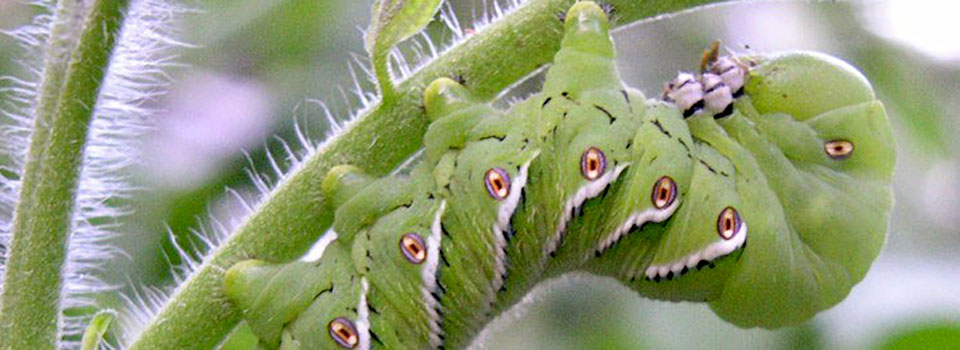The experiments had gone terribly awry. Mike Adang had expected the hornworms to be ready and waiting to devour more plants. They weren’t supposed to have died.
But to Adang, an entomology professor with the UGA College of Agricultural and Environmental Sciences, there is no such thing as a failed experiment. What he had, instead, was a “eureka” moment.
By adding a bit of an insect protein to a small piece of Bacillus thuringiensis (Bt) protein, he learned that it “took less Bt to kill the insects.”
Bt produces proteins that are toxic to many insect species. “It’s a natural bacterium,” Adang said. “It attacks the insect’s gut, making the insect sick.”
However, some insects are resistant to Bt. And that’s where Adang’s surprise comes into play.
He and colleagues Gang Hua and John Chen had been hoping to learn how Bt kills insects by feeding them part of an insect protein, the Bt receptor. Instead, they found a way to supercharge Bt and kill the insects faster and with less biopesticide.
And BtBooster was born.
We were very pleased to see something come from our basic research,” Adang said. “It’s a long way from the lab to making something useful.”
Bt proteins have changed the way crop plants are protected against insects. The technology can be built into a plant like cotton or corn and has been available to farmers since 1996. Vegetables and trees can also be protected from insect damage by being sprayed with a biopesticide made from Bt.
Bt provides an alternative to chemical ways of dealing with pests, especially where chemicals could harm humans. Bt doesn’t hurt people. For that reason, foresters can spray whole stands of tree with Bt to fight gypsy moths, which are among North America’s most devastating forest pests.
Organic farmers can use Bt and still be considered organic farmers because biopesticides come from living organisms. They can control the insects on their crops without having to worry about chemical residues.
Through a National Institutes of Health grant, UGA and his gene design and discovery company InsectiGen, Adang is now studying how Bt kills mosquitoes, especially those that carry diseases like West Nile virus.
“We’re looking at mosquitoes worldwide,” he said, “mosquitoes that vector dengue fever and other disease-transmitting mosquitoes. Over the long term, we want to make Bt more effective at killing mosquitoes.”
Using a U.S. Department of Agriculture National Research Initiative grant, he’s also specifically looking at how insects become resistant to Bt in cotton. He’s digging deeper into the workings of BtBooster, too, trying to figure out how it works and making improvements to optimize it.


